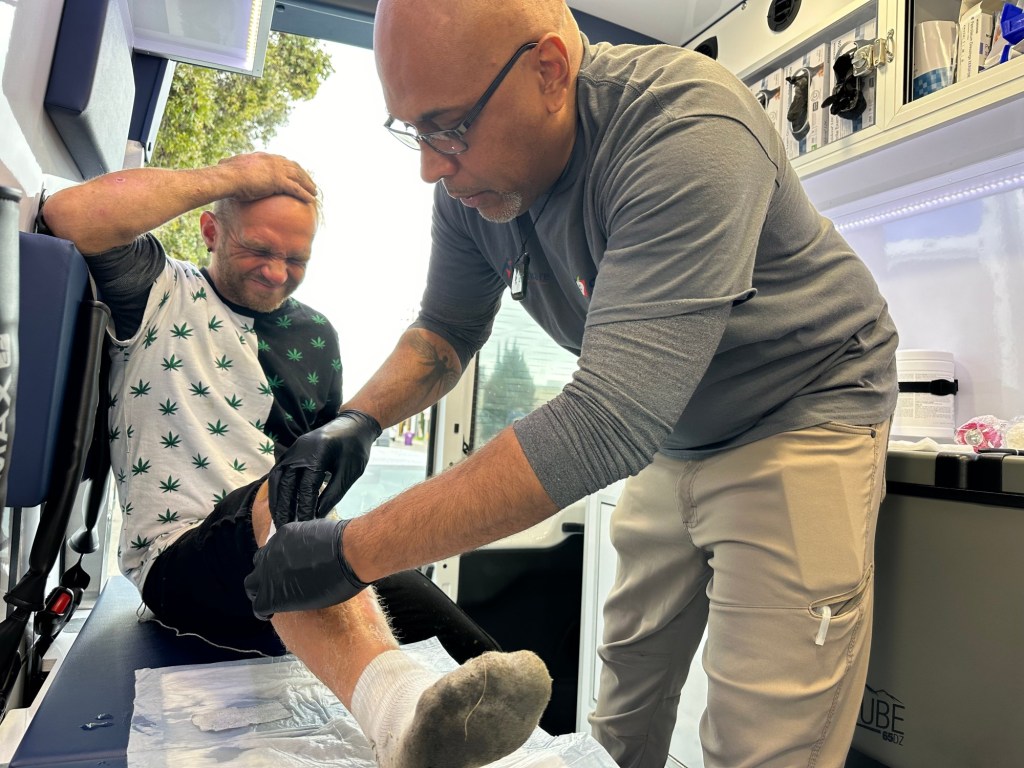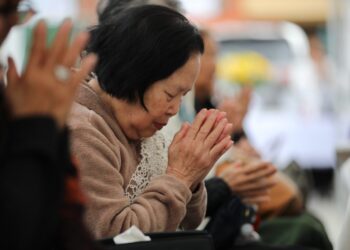By Angela Hart | KFF Health News
They distribute GPS devices so they can track their homeless patients. They stock their street kits with glass pipes used to smoke meth, crack, or fentanyl. They keep company credit cards on hand in case a patient needs emergency food or water, or an Uber ride to the doctor.
These doctors, nurses, and social workers are fanning out on the streets of Los Angeles to provide health care and social services to homeless people — foot soldiers of a new business model taking root in communities around California.
Their strategy: Build trust with homeless people to deliver medicine wherever they are — and make money doing it.
“The biggest population of homeless people in this country is here in Southern California,” said Sachin Jain, a former Obama administration health official who is CEO of SCAN Group, which runs a Medicare Advantage insurance plan covering about 300,000 people in California, Arizona, Nevada, Texas, and New Mexico.
“The fastest-growing segment of people experiencing homelessness is actually older adults,” he said. “I said, ‘We’ve got to do something about this.’”
Jain’s organization three years ago created Healthcare in Action, a medical group that sends practitioners onto California’s streets solely to care for homeless people. It has grown rapidly, building operations in 17 communities, including Long Beach, West Hollywood, and San Bernardino County.
Since its launch, Healthcare in Action has cared for about 6,700 homeless patients and managed roughly 77,000 diagnoses, from schizophrenia to diabetes. It has placed about 300 people into permanent or temporary housing.
Street medicine in most of the country is practiced as a charitable endeavor, aimed at serving a challenging patient population failed by traditional medicine, its proponents say. Living transient, chaotic lives, homeless people suffer disproportionately from mental illness, addiction, and chronic disease and often don’t have health…
Read the full article here







